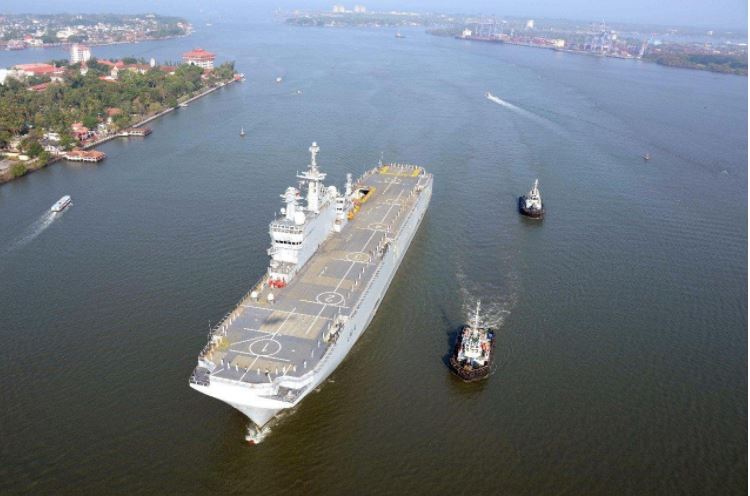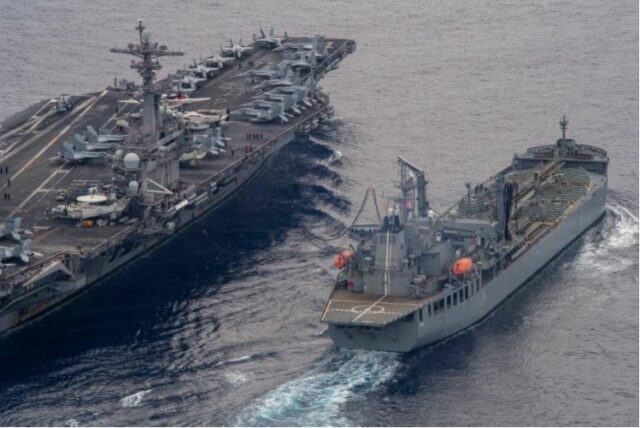NEW DELHI: Taking up from his testimony to the U.S. Senate Armed Services Committee in March, Admiral Philip S. Davidson, the outgoing head of the U.S. Indo-Pacific Command (INDOPACOM), sounded the bugle against “China’s very pernicious approach to the region”.
In a virtual discussion at ORF’s Raisina Dialogue with India’s Chief of Naval Staff (CNS) Admiral Karambir Singh, he acknowledged India as “indispensable for peace, prosperity and security” and New Delhi being “one of the Indo-Pacific Command’s highest priorities”.
Admiral Davidson talked about the “diamond of democracies” and the Quad (Japan, Australia, India and the U.S.) “gaining strength and momentum.” He referred to the Indo-Pacific “being in competition between a closed, authoritarian Beijing’s vision and the idea of a free and open Indo-Pacific, calling out “their intent to undermine international law and norms and supplant it with a new order with Chinese characteristics.”
While singling out China as the “greatest strategic threat to the rules based international order”, the INDOPACOM head expressed concern about Russia’s “malign influence throughout the region. They regularly play the role of spoiler seeking to undermine regional interests and impose additional costs on U.S. engagements, as well as our allies.”
 Australian fleet replenishment vessel HMAS Sirius with the Theodore Roosevelt Carrier Strike Group. (Photo: US Navy)
Australian fleet replenishment vessel HMAS Sirius with the Theodore Roosevelt Carrier Strike Group. (Photo: US Navy)
But, he added, “competition does not mean conflict.” The recent La Perouse (French-led naval exercises with Quad partners) exercises “are fundamental to our ability to deter aggression and ensure a free and open Indo-Pacific”.
 French naval ship Tonnerre that took part in La Perouse exercises with Quad (India, Japan, Australia, U.S.) ships from April 5-7. (Photo: Indian Navy)
French naval ship Tonnerre that took part in La Perouse exercises with Quad (India, Japan, Australia, U.S.) ships from April 5-7. (Photo: Indian Navy)
Admiral Karambir Singh talked about Prime Minister Narendra Modi’s articulated policy of any nation that seeks to promote a free open and inclusive Indo-Pacific would naturally find partners in the region. The Indian Navy is working, he said, “with like-minded navies to build interoperability and trust. It’s like an open architecture network.”
“We can’t plough a lonely sort of chart, Admiral Singh acknowledged, adding “we have to cooperate because it’s a very large canvas in terms of the challenges.” He drew attention to a blurring line between peace and war with some countries resorting to a competition continuum to achieve their goals, operating below the threshold of conflict. And because of this, now, there are more flashpoints that are likely. On interoperability between navies, the CNS looked forward to the “day when our different navies could operate their aircraft from each other’s platforms” while saying the PLA Navy’s “intention to replicate the U.S. carrier strike groups will take time” he also noted “they’re moving very quickly.”
















